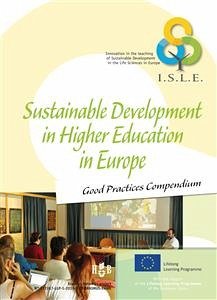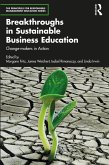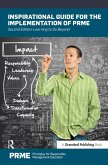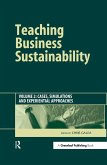Higher Education Institutions among all educational structures are vested with significant responsibility in implementing the concept of Sustainable Development, both to incorporate this concept within their activities (teaching, research, operations) and to widespread Sustainable Development in the society and business world. The report has been elaborated within the ISLE project (Innovation in the teaching of Sustainable Development in Life Sciences in Europe), an Erasmus Network composed by 39 partners from 30 European countries representing Higher Education Institutions, Research institutes and Enterprises that have a focus in the life sciences. The objective of the Compendium is the identification and diffusion of Good Practices concerned with Education for Sustainable Development (ESD) in Higher Education Institutions. The topic is analysed in a broader sense, on one side considering the characterisation of the political and institutional framework, and on the other side describing formal and informal learning experiences in Higher Education Institutions.36 Good Practices are discussed and presented in systematic forms, that have been categorized according to the following topics related to the implementation of Sustainable Development education: policies, institutional activities, teaching and practical experiences. The Good Practices represent a wide range of situations concerning different European countries, institutions, typologies of the initiatives, geographical levels of implementation. However in this diversity some characterizing aspects emerge: the holistic and interdisciplinary approaches to ESD, the attention in achieving tangible results, the involvement of local communities and the bottom-up approaches, the importance of partnerships and networking, the capacity building, the innovation of the initiatives, and the attention in building a framework favorable to Sustainable Development.
Bitte wählen Sie Ihr Anliegen aus.
Rechnungen
Retourenschein anfordern
Bestellstatus
Storno









